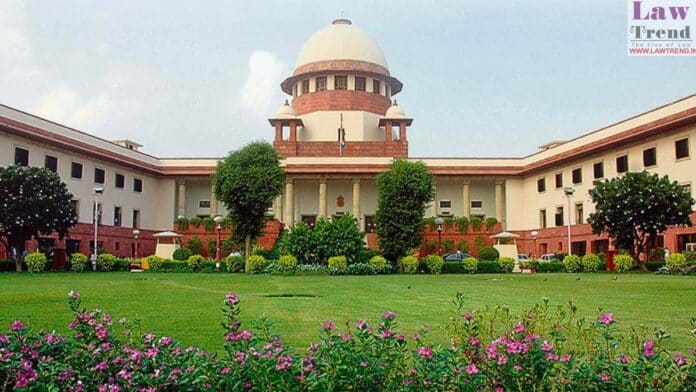Two separate intervention applications were filed in the Supreme Court on Thursday seeking dismissal of the pleas challenging the abrogation of Article 370 of the Constitution that bestowed special status on the erstwhile state of Jammu and Kashmir.
A five-judge constitution bench comprising Chief Justice D Y Chandrachud and Justices Sanjay Kishan Kaul, Sanjiv Khanna, BR Gavai and Surya Kant is slated to hear from August 2 a batch of petitions challenging the repeal of Article 370.
The applications have been filed by ‘Youth 4 Panun Kashmir’ and social activist Virinder Kaul. Both applications have been filed through advocate Siddharth Praveen Acharya.
‘Youth 4 Panun Kashmir’, which the plea says is a frontline worldwide movement of Kashmiri Hindu youths, has said Article 370 and Article 35-A of the Constitution had “violated” the basic structure of the Constitution as it never recognised the supremacy of the Indian Constitution.
Kaul, a Kashmiri Pandit, has said in his application that Article 370 was “discriminatory” as it created two classes of citizens — one for the erstwhile state of Jammu & Kashmir and other for the rest of India — and its abrogation has removed this discrimination.
Article 35-A, which was incorporated in the Constitution by a 1954 Presidential Order, accorded special rights and privileges to the citizens of Jammu and Kashmir and barred people from outside the state from acquiring any immovable property in the state.
It also denied property rights to a woman who married a person from outside the state.
On August 5, 2019, the Centre decided to strip the erstwhile state of Jammu and Kashmir of its special status and bifurcate it into two union territories.
Several petitions challenging the Centre’s action of abrogating the provisions of Article 370 and the Jammu and Kashmir Reorganisation Act, 2019, which split the erstwhile state into two union territories – Jammu and Kashmir, and Ladakh- were referred to a Constitution bench in 2019.
By abrogating Article 370, the central government had revoked the special status of Jammu and Kashmir.
In its application, ‘Youth 4 Panun Kashmir’ has said, “Article 370 and Article 35-A of the Constitution had violated the basic structure of the Constitution as it never recognised the supremacy of the Indian Constitution. It was an attack on the unity and sovereignty of India.”
The organisation said both Article 370 and Article 35-A were by nature discriminatory against the Kashmiri Pandits and rest of the minorities in the erstwhile state and were in absolute violation of the pillars of the Constitution — Articles 14 (equality before law), 19 (protection of certain rights regarding freedom of speech etc.) and Article 21 (protection of life and personal liberty).
In his application, Kaul has said, “Article 370 and the issue of autonomy were designed to be manipulated in such a way that a virtual ‘Sheikdom or Sultanate’ or mini Pakistan was nurtured with the Indian tax payer’s money”.
The application said keeping Article 370 in force perpetuated a feeling of separateness and furthered Pakistani propaganda that the erstwhile state was a disputed territory.
Both the applications have sought dismissal of the petitions challenging the vires of the abrogation of Article 370 and Article 35-A of the Constitution.
On July 11, the apex court had said it will commence day-to-day hearing from August 2 on a batch of petitions challenging abrogation of Article 370.
Also Read
It had fixed July 27 as the deadline for filing of written submissions and convenience compilations by different parties.
The bench had said hearing on the pleas will be held on a day-to-day basis except on Mondays and Fridays, which are days for hearing miscellaneous matters in the apex court. Only fresh petitions are taken up on these days for admission hearing and regular matters are not heard.
Defending the abrogation of Article 370, the Centre had on July 10 told the apex court that the entire region of Jammu and Kashmir has witnessed an “unprecedented” era of peace, progress and prosperity, with street violence, orchestrated by terrorists and secessionist networks, becoming “a thing of the past.”




